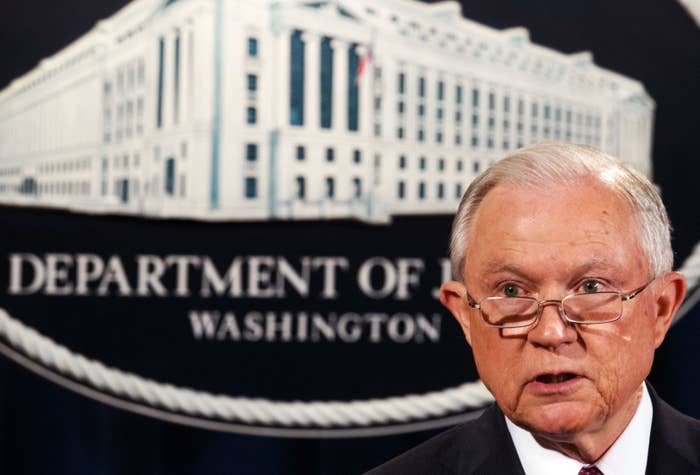
A federal judge in Chicago issued a nationwide order on Friday that temporarily blocks the US Department of Justice from requiring cities to comply with new federal grant requirements aimed at so-called sanctuary cities.
US District Judge Harry Leinenweber found that Chicago was likely to succeed in arguing that Attorney General Jeff Sessions exceeded his authority in imposing rules that require cities applying for a law enforcement grant program to notify federal agents about suspected undocumented immigrants before releasing them and to give agents access to detention facilities.
Leinenweber ruled that Chicago would suffer immediate harm absent a preliminary injunction from the court as the litigation moved forward. He made his order nationwide because he said there was no reason to think that the legal issues in the case were restricted to Chicago or that the attorney general's authority would differ elsewhere.
"The harm to the City’s relationship with the immigrant community if it should accede to the conditions is irreparable. Once such trust is lost, it cannot be repaired through an award of money damages," Leinenweber wrote. He said that the harm to the city outweighed any harm to the Justice Department in delaying conditions that hadn't taken effect yet.
Chicago Mayor Rahm Emanuel said in a statement that the "ruling means essential resources for public safety in Chicago and across the country cannot come with unlawful strings attached from the Trump Justice Department. This is not just a victory for the City of Chicago, but a win for cities, counties and states across America.”
A Justice Department spokesman said in an email that, "By protecting criminals from immigration enforcement, cities and states with 'so-called' sanctuary policies make their communities less safe and undermine the rule of law. The Department of Justice will continue to fully enforce existing law and to defend lawful and reasonable grant conditions that seek to protect communities and law enforcement."
The Justice Department in July announced new conditions for the federal grant program, called the Edward Byrne Memorial Justice Assistance Grant Program, which provides support for state and local law enforcement. Chicago has received millions of dollars in funds through the program.
The first new condition requires local law enforcement officials to notify federal agents 48 hours in advance of releasing individuals who are suspected of violating US immigration laws, even if they're not charged with a crime. The second new condition requires that grant recipients give federal immigration agents access to local detention facilities. The Justice Department also required cities that apply to certify that they're in compliance with an existing law that restricts cities from withholding certain information about a person's citizenship status from US Department of Homeland Security officials.
Chicago restricts city employees, including police, from asking for information about a person's immigration status and that limit cooperation with federal immigration agents. Chicago police can share certain information with federal immigration agents about certain categories of undocumented immigrants, such as those with felony convictions or who are facing felony charges.
In announcing the new rules in July, Sessions in a statement railed against cities that had adopted policies akin to those in Chicago, saying that they "make all of us less safe because they intentionally undermine our laws and protect illegal aliens who have committed crimes."
Chicago sued in August over the new set of Byrne grant requirements, arguing that Sessions lacked authority to impose them and that they were unconstitutional.
In granting a preliminary injunction on Friday, Leinenweber found that Chicago was likely to succeed in its challenge to the new notice and access requirements, but not the compliance certification requirement. He found that Congress did not authorize the attorney general to impose the type of "substantive" conditions on the Byrne grants that Sessions had adopted.
The judge also found that Chicago had shown that it would suffer immediate harm in the absence of an injunction. Chicago had argued that the new rules forced the city to choose between securing funds that were earmarked for critical law enforcement-related technology or embrace policies that the city had determined would erode trust between police and immigrant communities.
One of the factors that the judge had to consider in deciding whether to grant a preliminary injunction was what was in the public's best interest. The judge said that was a wash — both sides made "strong public policy arguments, the wisdom of which is not for the court to decide," he wrote.
UPDATE
Updated with comments from Mayor Rahm Emanuel.

